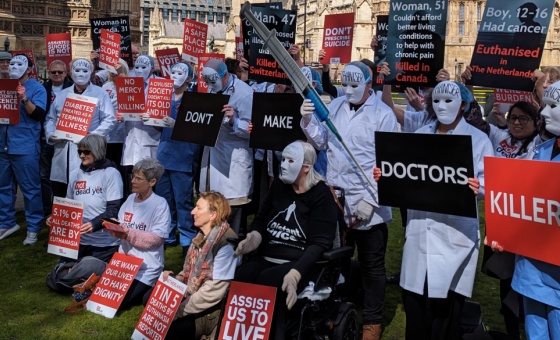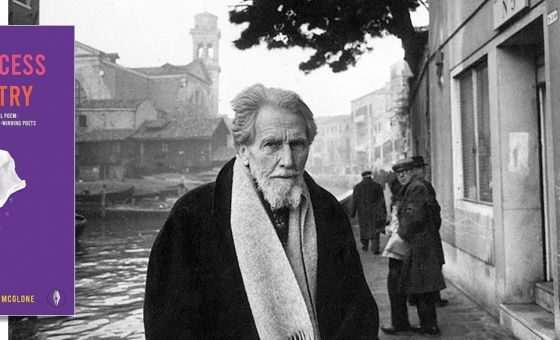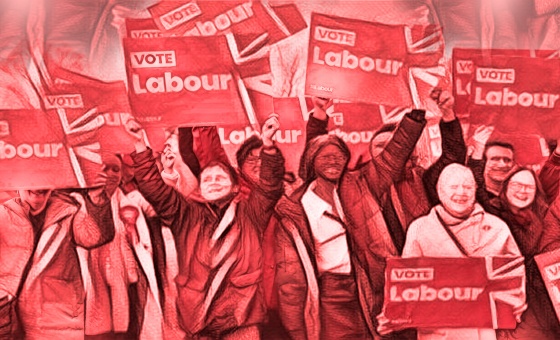This is the last article you can read this month
You can read more article this month
You can read more articles this month
Sorry your limit is up for this month
Reset on:
Please help support the Morning Star by subscribing here
IT’S 2024, in the sixth-richest nation on the planet, and child poverty stalks the land.
Twelve million people — 18 per cent of the entire UK population — are living in absolute poverty, 3.6 million of them children.
Nearly a fifth of people are struggling to meet basic needs and an additional 300,000 children have fallen into poverty over a 12-month period.
These are not made-up figures from biased campaigners or political points being scored by opponents of the Conservatives. These are the latest figures on child poverty released by the government itself.
Now, the National Education Union’s (NEU) yearly State of Education survey — a poll of 12,500 members conducted ahead of our annual conference in Bournemouth — has revealed the shocking extent of child poverty in our communities. And it makes for horrific reading.
In our survey, 76 per cent of members report that their school or college helps disadvantaged pupils with their school uniform, 52 per cent provide free breakfasts and 63 per cent give out free period products.
Teachers and support staff say they regularly pay out of their own pocket for food, period products, toiletries and laundry, to help pupils in their care.
They tell us about the devastating impacts on children’s learning — 84 per cent say they see signs of tiredness and fatigue, 79 per cent report an inability to concentrate and 65 per cent see an inability to complete homework. Our members’ comments are truly heart-breaking.
“Children see no point to school as they can’t see a way out of poverty.”
“Some students are well fed and have access to the latest technology; others do not even have a bedroom.”
“Children tell us they are not sleeping at night because they are too cold — it’s horrifying.”
“Pupils are coming in tired from being up all night, especially those with parents who work shifts so they’re not there to tell them to go to bed.”
“Students not being able to get to school because they cannot afford the bus fare.”
Cuts to school budgets just make the problem worse as schools struggle to keep up with growing need.
Provision of hygiene banks — wash stuff, toothpaste and deodorant — has dropped significantly since last year and members are dipping into their own pockets to plug the gaps.
A third of support staff provide help with school uniform, 27 per cent with period products, 20 per cent with toiletries and 14 per cent help with laundry. More than three-quarters regularly provide extra food to pupils who come to school hungry.
“Staff in my school provide many necessary resources and basic products such as food and clothes as there simply is no money to pay for absolute necessities. It’s impossible to ignore the desperate need you face every day.”
“There is only so much we can do. Services outside of education are non-existent and rely on schools far too much. Social care, CAMHS [Child and Adolescent Mental Health Services] SEN [special educational needs] services and parent support are largely absent, poor or inadequate.”
Members want to see solutions from government to properly respond to this catastrophe. The survey finds that 79 per cent of teachers want free school meals for all children who attend primary schools — 76 per cent think that should be extended to secondary school pupils. And 89 per cent want a strengthening of rules to ensure school uniforms are affordable.
You’d think that the overwhelming weight of facts would ring alarm bells in the corridors of power.
But these damning indictments just elicit the same old tune from government ministers. Work and Pensions Secretary Mel Stride said: “The plan is working, and we need to stick to it to deliver a brighter future and economic security for everyone.”
Deluded. Deluded and dangerous.
The truth is that after 14 years of Conservative rule, we have hundreds of thousands more children growing up trapped in poverty.
Every day, our members in schools up and down the country see the real impact poverty has on children and young people.
Fatigue, hunger and poor health are commonplace. What child can learn and thrive when faced with such barriers?
After 14 years, one thing is abundantly clear. The suffering endured by our children is a political choice.
The punishingly inadequate benefit system and the two-child benefit cap, coupled with the cost-of-living crisis and low wages, are plunging families into a downward spiral that is difficult to climb out of.
Decimated family support services and mental health provision simply add to the problem.
Our brilliant members and their schools and colleges are doing all they can. But they are having to pick up the pieces of a system drained of the expertise and money that would really make a difference to families struggling to survive.
Poverty limits children’s futures. It holds children back in school and cuts off their potential at the very start of their lives. Food poverty embeds issues of class inequality and social isolation in school.
If the government truly believed in enhancing the wellbeing of young people, it would extend free school meals to every child attending primary school. And it would scrap the two-child benefit cap that disadvantages so many.
In this general election year, we need to say enough is enough. Life is getting worse for Britain’s families and our children are paying the price of an inept and useless government that cares little for the people over which it rules.
This year, whoever wins the election, it’s time to put children first. Before it’s too late.










